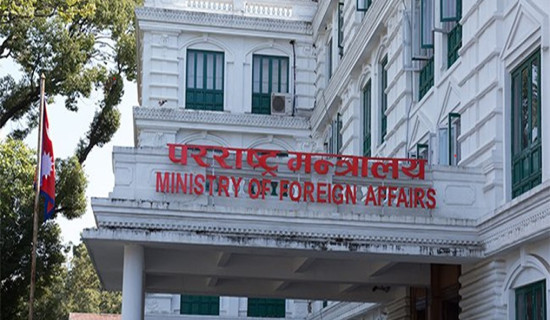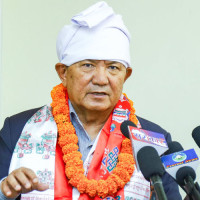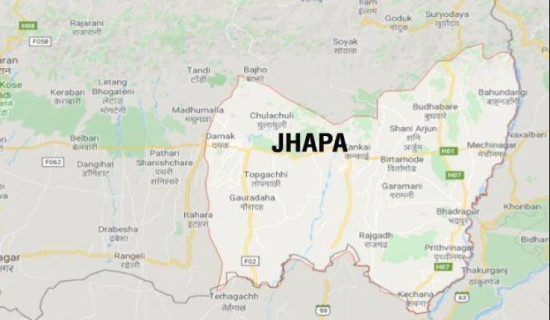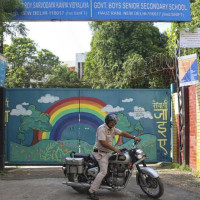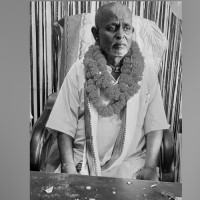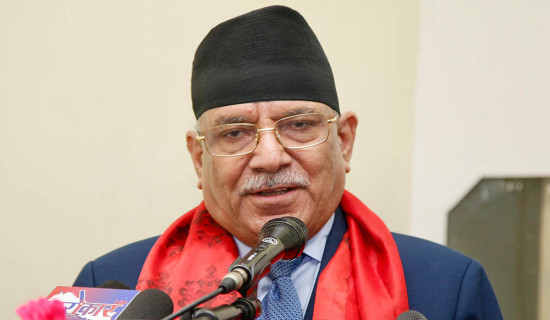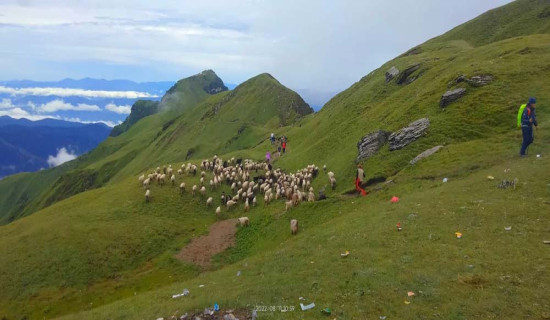- Thursday, 21 August 2025
Stories Reflecting Life
Sushant Thapa’s collection of twenty-two short fictions is dedicated to the “different characters and stories around us.” This dedication is an apt introduction to the series of flash fictions following it. Each story is more than a tale; it is also a lesson about the nature of reality. Thapa asks questions and allows his characters to answer them through their actions and dialogue. Many of the protagonists are singular and interact within a nexus of society. The stories are voiced through an observant narrator who offers insights into the thought processes that make the characters tick.
The One Rupee Taker and Other Stories from Nepal is about how we craft our realities. A story is more than mere words; it is essence and being. Predicaments reflected in these fictions are true to life, ranging from charity and love to occupational searches and university life. Stories are told sensitively. In the first fiction, even golf clubs are reflected through a human lens: “They can hear our heartbeat too. This will kindle a heart in them as well,” suggests Fai’s father. Fai, a loner, finds a glass slate on which she writes, fuelling her imagination in the author’s words. This object becomes a mirror into our essence and humanity in “The Glass Slate” as the child learns to cultivate her youthful imagination.
Many stories, such as “Discovery,” reflect the why of life, offering statements like “Poetry could reflect happiness, pain, and illusion in life. Mathematics was very abstract for him. The answers never matched, and sometimes he doubted the questions, too.” Ray finds mathematics puzzling and escapes through literary pursuits, only to recognise that the knowledge he pursues is present in both subjects, though they are expressed differently. Thapa writes how he makes this discovery, “The openness makes all the difference.” These stories provide a moral compass by which we can realise the importance of the human experience. Being open is essential.
However, not all fiction is full of innocence and glad tidings. In “Social Media Industry and My City,” the narrator suggests, “Relationships that corrode inside the crimson walls of the city’s happiness are never scripted and popularised.” Many characters live solitary lives; some are contented, while others search for something more profound. Thapa offers keen observations but does not overdo the effort. His feelings for each subject are sensitively portrayed but not elaborately decorated with difficult passages. “Social Media Industry and My City” ends with mysterious solitude: “I do not know which face the city hides on the streets at night.” The solitary yet observant personality allows the story to flow realistically.
“The Wandering Child” is about moral responsibility. Thapa observes through Suraj, “He analysed that people always blamed governments for the lack of things. He sensed that changes should come from an individual and their deeds.” Later stories involve bureaucracy deciding for the lives of citizens, such as “The Beginning Saga,” where the government commissions the story writer but he must live without his family. The imposed solitude invites the narrator, Rudra, to change contracts with officials so that he can work and have a family. This Kafkaesque tale haunts the imagination with the burdens of self-responsibility.
Some stories invite lessons on understanding the craft of writing. In “Cup of Choice: Her Kind of Love,” Thapa observes, the rush of modern life did not have time to read about these issues of differences from the newspaper. Queer issues are always talked about, but this remained a personal issue that affected the mode of life. Later, he notes, “In the end, where you employ the mind is the main concern. Lives matter, and minds matter too.” This ending reveals the moral of the story about sex and lust. Ultimately, it is about purpose and not being ashamed of who you are. The power of culture through media is dutifully noted. This longer story is divided into three parts, which sustain this lesson. The third subsection, “Fly, Fly, Fly,” offers the most poignant lesson: “Yes, life needn’t be a reaction to every other thing. Legends take a firm path and stick to it.”
The story, “The One Rupee Taker,” teaches a lesson about charity and experience. Rumours about the mysterious one-rupee taker surround society. Some think he was a wealthy businessman who wanted to maintain a connection with money after losing his wealth to a deceitful partner. He only asks for one rupee. The ethic of responsibility chimes in again, “The give-and-take process dilutes the tension. Yet, it seems to be a never-ending process that holds the burden for both parties.” The mysterious person creates tensions because of his regular habit of begging. However, giving relaxes the tension.
Each story is a rendition of the everyday world as we experience it. Sushant Thapa parallels experience to fiction throughout, suggesting the lives we lead and read are worthy of full attention. His use of common, direct language keeps the story within the bounds of readability. However, the stories are much broader tales of how to live faithfully to yourself, to search your imagination, and to recognise the need for art and companionship in our individuated existence. Thapa conveys to careful readers of The One Rupee Taker that time and habit are essential; responsibility is the why we live, not the what we live; and authentic experience is the mask fiction wears to illustrate purpose.
The contemporary audience can draw entertainment and fulfilment from this flash fiction collection. The stories are not told decoratively and without reason. The stories convey the mysterious ways we interpret our world through our ability to write, create culture, and critique ourselves through art. Sushant Thapa’s stories are distilled wisdom. Readers will draw parallels to their lives and possibly find meaning in their mysteries.
(Pickering is the founder of Transcendent Zero Press.)



